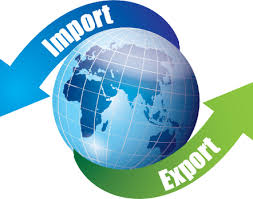By: Bruce H. Leeds, Senior Counsel
“Customs business” is defined in Part 111.1 of the Customs Regulations as “those activities involving transactions with CBP concerning the entry and admissibility of merchandise, its classification and valuation, the payment of duties, taxes, or other charges assessed or collected by CBP on merchandise by reason of its importation, and the refund, rebate, or drawback of those duties, taxes, or other charges. “Customs business” also includes the preparation, and activities relating to the preparation, of documents in any format, and the electronic transmission of documents and parts of documents intended to be filed with CBP in furtherance of any other customs business activity, whether or not signed or filed by the preparer. However, “customs business”’ does not include the mere electronic transmission of data received for transmission to CBP, and does not include a corporate compliance activity.”
That is a pretty big definition to say the least. One could sum it up by saying it includes providing entry data and information and preparing and filing documents and data with U.S. Customs & Border Protection (CBP).
The issue is, who can do these things? The importer can always do these things for themselves. Any authorized employee of the importer can perform customs business for his/her employer since no customs broker license or power of attorney is required (except for a few documents that must be executed by an owner or officer of the importer or employee holding power of attorney). Customs business may also be conducted by a licensed customs broker on behalf of its clients that have issued valid powers of attorney to that broker.
The issue with the “customs business” rule is when an employee of a parent, subsidiary, or sister company wants to perform customs compliance services on behalf of related, or separately incorporated , companies. Is that OK? Are there any restrictions or prohibitions? Well yes there are.
Example: Acme Corporation has two separately incorporated subsidiaries: Acme A and Acme B. Both subsidiaries have their own importer of record numbers, and both import products into the U.S. Neither subsidiary has a customs compliance function. Instead, Mary Jane Smith at Acme Corporation provides advice on customs matters to the 2 subsidiaries. She also drafts and signs responses to CBP Forms 28 and 29 and submits tariff classification ruling requests on their behalf. Mary Jane has an individual customs broker license. Can Mary Jane legally do all those things, or is she violating the “customs business” rule? Does it make a difference if she has an individual customs broker license?
A significant CBP ruling on this subject was Headquarters ruling 116220, dated June 21, 2004. In this ruling, Customs compliance of Ross Dress for Less Stores provided compliance services to related separately incorporated companies. Ross Dress for Less and the related companies are all wholly owned by Ross Stores Inc. The services would include classification and value information. Ross Dress for Less proposed to provide the customs brokers for these companies with information and advice concerning filing of entries, responding to CBP Forms 28 and 29, performing compliance audits and assessments, and submitting post entry claims. The issue is whether these activities are proper.
In the ruling, CBP noted that Part 111.1 was amended in 2003 to include “corporate compliance activity.” This was defined as ” activity performed by a business entity to ensure that documents for a related business entity, or entities, are prepared and filed with Customs using ‘reasonable care’, but such activity does not extend to the actual preparation or filing of the documents or their electronic equivalents.” Related business entity is one where there is at least 50% ownership or co-ownership.
The ruling held that providing information and advice to related Ross companies on classification and value, and providing information to customs brokers for the filing of entries, was within the scope of corporate compliance activity and thus allowable. The other activities such as responding to CBP forms 28 and 29, and filing post entry claims , were not allowed because they involved the filing of documents or data with CBP.
With this in mind let’s go back and look at the activities of Mary Jane Smith at Acme Corp. Given the provisions in Part 111.1 and the Ross ruling what can she do for Acme A and Acme B? She can give the subsidiaries advice on the tariff classification and Customs valuation of their imports. This falls within “corporate compliance activity.” She could also provide information to the customs brokers for the subsidiaries for use in preparing and filing entries. Mary Jane could not, however, respond to CBP Forms 28 and 29, or request customs rulings on their behalf, because these activities involve the filing of documents and data with CBP.
Does it make a difference if Mary Jane has a customs broker license? No, because in her corporate role she is acting as an employee of the corporation, and not as an independent customs broker.
In summary, Customs compliance employees can provide information and assistance (including training) to related parent, sister or subsidiary companies. This could include feedback and guidance on responding to CBP Forms 28 and 29, seeking customs rulings and filing claims with CBP, but actually preparing, signing and filing those forms or data is not allowed. Those activities may only be performed by employees of the individual companies, or by a licensed customs broker properly appointed by those companies.
We don’t know if CBP has actually assessed penalties for violation of the “customs business” rule, but it is certainly an area where one needs to exercise caution.























